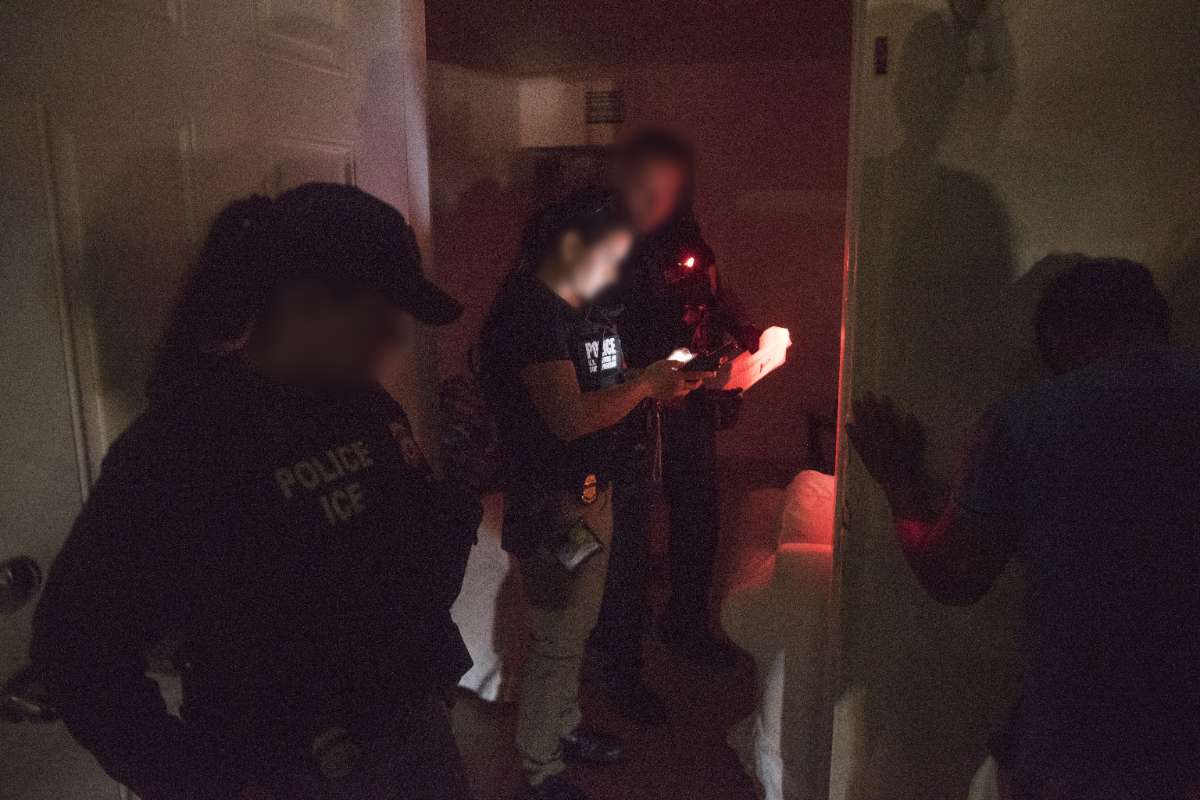(CHICAGO, ILLINOIS) ICE detains a well-known tamale vendor on Chicago’s Southwest Side after a large enforcement sweep that witnesses called unusually heavy. Laura Murillo, a street seller many neighbors know from weekend mornings, was taken into custody on Thursday, September 25, 2025, near the Home Depot at 47th Street and Western Avenue in the Back of the Yards neighborhood. The operation, known to participants and observers as Operation Midway Blitz, unfolded across multiple locations and led to several arrests, including street vendors and day laborers.
Murillo, originally from Tamaulipas, Mexico, has lived in the United States for more than 20 years. She is undocumented and has built a small food business that employs about 20 people, according to family and local advocates. She is the mother of four children. Two daughters are U.S. citizens; one has special needs and relies on Laura as her main caregiver. Family members say this detention creates immediate concerns for the children’s care, school routines, and basic support.

Witnesses describe a caravan of federal vehicles and agents in tactical gear sweeping the area around the two Home Depot stores named in the operation. Some street vendors tried to pack up quickly. Others called relatives. A few people were on video calls with loved ones when agents arrived. Murillo’s fiancé, Jaime Pérez, says he was on a call with her when agents cut the connection and took her phone and belongings.
Murillo is now held at the Broadview ICE processing center, where detainees typically wait for next steps in their cases. Family members and local groups, including the Southwest Side Rapid Response Team, are looking for an attorney and gathering records that may help in court. Supporters have gathered outside the facility and along 47th Street. They are asking for updates on Murillo’s case and for help for others who were also detained in the sweep.
Community response and immediate support
By late afternoon, word of the enforcement action spread across social media, neighborhood chat groups, and local storefronts. Community members stepped in with food for the family, offers of child care, and help printing documents. Some small business owners who buy tamales wholesale from Murillo’s operation say they worry about payroll and orders, but their first concern is the well-being of her children.
Teams of volunteers moved quickly to:
- Track who had been detained and where they were taken.
- Coordinate phone trees and gather witness statements.
- Begin outreach to legal clinics and hotlines.
Volunteers say the presence of Border Patrol agents and other federal officials in Chicago has raised fear among street vendors and day laborers, especially those who work near big retail parking lots where many find day jobs.
Advocates organized peaceful rallies at the Home Depot parking lots and outside the detention center. They asked bystanders to document interactions and share information with legal hotlines.
For families with mixed status—some U.S. citizens, some with pending cases, and some undocumented—the sudden loss of a parent or caregiver can be devastating.
Supporters emphasize Murillo’s child with special needs, noting the strain on both the child and the extended family who may now take on care.
Practical community actions under way
- Volunteers and organizers are providing:
- Food and short-term financial help
- Child-care offers and rides
- Assistance printing and collecting important documents
- Organizers plan know-your-rights briefings in Spanish and English for street vendors and day laborers.
- Advice being circulated:
- Keep copies of key documents in a safe place
- Designate emergency caregivers
- Compile school and medical records
According to analysis by VisaVerge.com, swift access to counsel and family preparedness steps—like designating emergency caregivers and compiling school and medical records—can shape how families cope in the first critical days after a detention.
Broader context and legal next steps
The enforcement activity labeled Operation Midway Blitz took place at more than one site, including two Home Depot stores on the Southwest Side. Witnesses described the show of force as broader and more coordinated than routine checks. ICE detains vendors and day laborers in various cities, but local observers say the scale of Thursday’s presence in Back of the Yards stood out. The operation fueled protests and brought urgent calls for legal aid from neighborhood groups.
Murillo’s supporters are seeking:
- Transparency about the basis for the arrests
- Clarity on the timeline for court proceedings
- Assurance that caregivers can maintain contact with detained relatives
Families often use the official ICE Detainee Locator to confirm a loved one’s location and learn facility rules for visits and calls. Advocates emphasize keeping receipt numbers, full names, and dates of birth on hand to speed up searches and legal intake.
Economic and social ripple effects
For street vendors, the ripple effects extend beyond the initial arrest. Many vendor operations are family-run and support relatives here and abroad. A single detention can:
- Disrupt orders and vendor markets
- Interrupt income for helpers who cook, deliver, or handle cash sales
- Create unpaid invoices and missed payroll for employees
With Murillo’s business employing about 20 people, co-workers now face lost shifts and unpaid invoices. Neighborhood cafés and groceries that buy her tamales may need emergency suppliers to keep their customers fed.
Neighbors underline the immediate worry: if a parent does not come home, kids need care. This is especially urgent for a child with special needs, where routines and therapies can be interrupted. Churches and community centers often step in to arrange rides, groceries, or temporary support.
Community concerns and responses to enforcement tactics
The presence of federal agents in tactical gear has stirred debate about public safety vs. everyday work on city streets. Reactions include:
- Some residents say operations like this create panic and pull apart long-standing families.
- Others note that federal law gives immigration officers broad authority to act.
- For many affected families, the urgent need is due process, legal counsel, and consistent information rather than policy debate.
Murillo’s family and supporters say they will continue to press for updates, access to counsel, and public support as the case moves forward. They plan more rallies and are coordinating rides to Broadview to attend visiting hours as allowed by facility rules. Volunteers also provide language help for relatives who need to explain the situation to schools and health providers.
What may happen next
What happens next can vary from case to case. Typical possibilities include:
- A detainee appearing before an immigration judge
- Consideration of bond
- Transfer to another facility
For now, Murillo’s supporters focus on three priorities:
- Keeping her children stable, especially the daughter with special needs
- Ensuring caregivers have the information and resources they need
- Maintaining the tamale business so wages can be paid
The neighborhood response—small donations, shared meals, and unpaid volunteer work—reflects how closely tied street vending is to community life on the Southwest Side.
Immediate changes in behavior and outlook
After Operation Midway Blitz, vendors near 47th and Western report:
- Packing up earlier in the day
- Staying closer to known customers
- Being more alert to signs of another sweep
The Back of the Yards community has faced uncertainty before, but the scale of this operation — and the detention of a well-known tamale vendor — has left many feeling exposed.
For now, families and advocates say their focus is steady: keep people informed, keep kids safe, and keep pressing for legal answers.
This Article in a Nutshell
On September 25, 2025, ICE detained Laura Murillo, a longtime tamale vendor in Back of the Yards, near the Home Depot at 47th and Western, as part of a multistate enforcement action called Operation Midway Blitz. Murillo, originally from Tamaulipas, Mexico, is undocumented, has lived in the United States for over 20 years, employs roughly 20 people, and is the primary caregiver for four children, including one with special needs. The sweep targeted multiple locations including two Home Depot stores and resulted in several arrests of street vendors and day laborers. Community members, advocacy groups and volunteers organized rapid-response efforts: tracking detainees, coordinating legal outreach, providing food and childcare, and staging peaceful rallies. Supporters are seeking legal representation, transparency about charges and timelines, and safeguards to maintain contact and care for Murillo’s children. The detention disrupted local supply chains and raised broader concerns about enforcement tactics, community trust, and the economic ripple effects on family-run vendor businesses.








